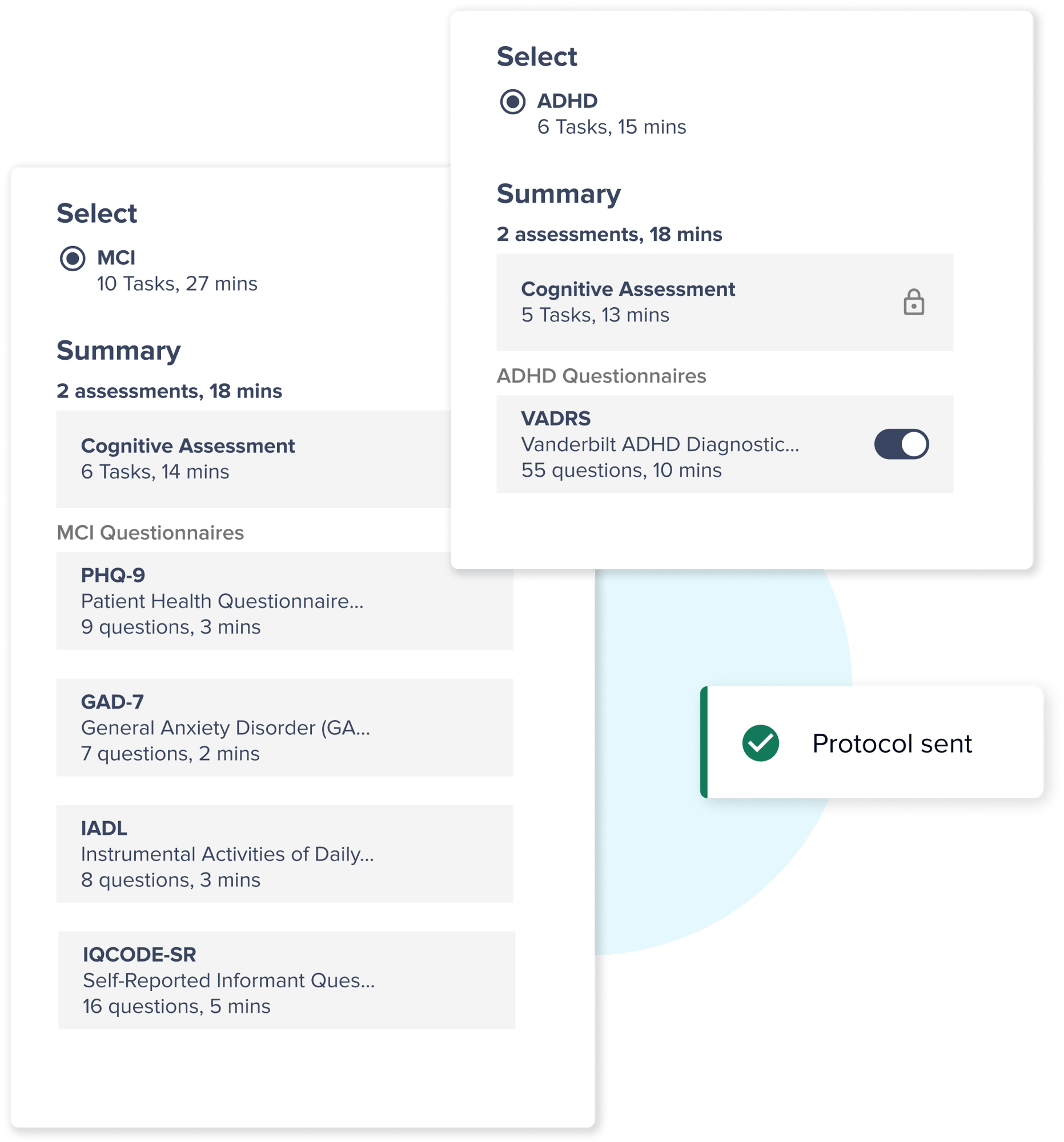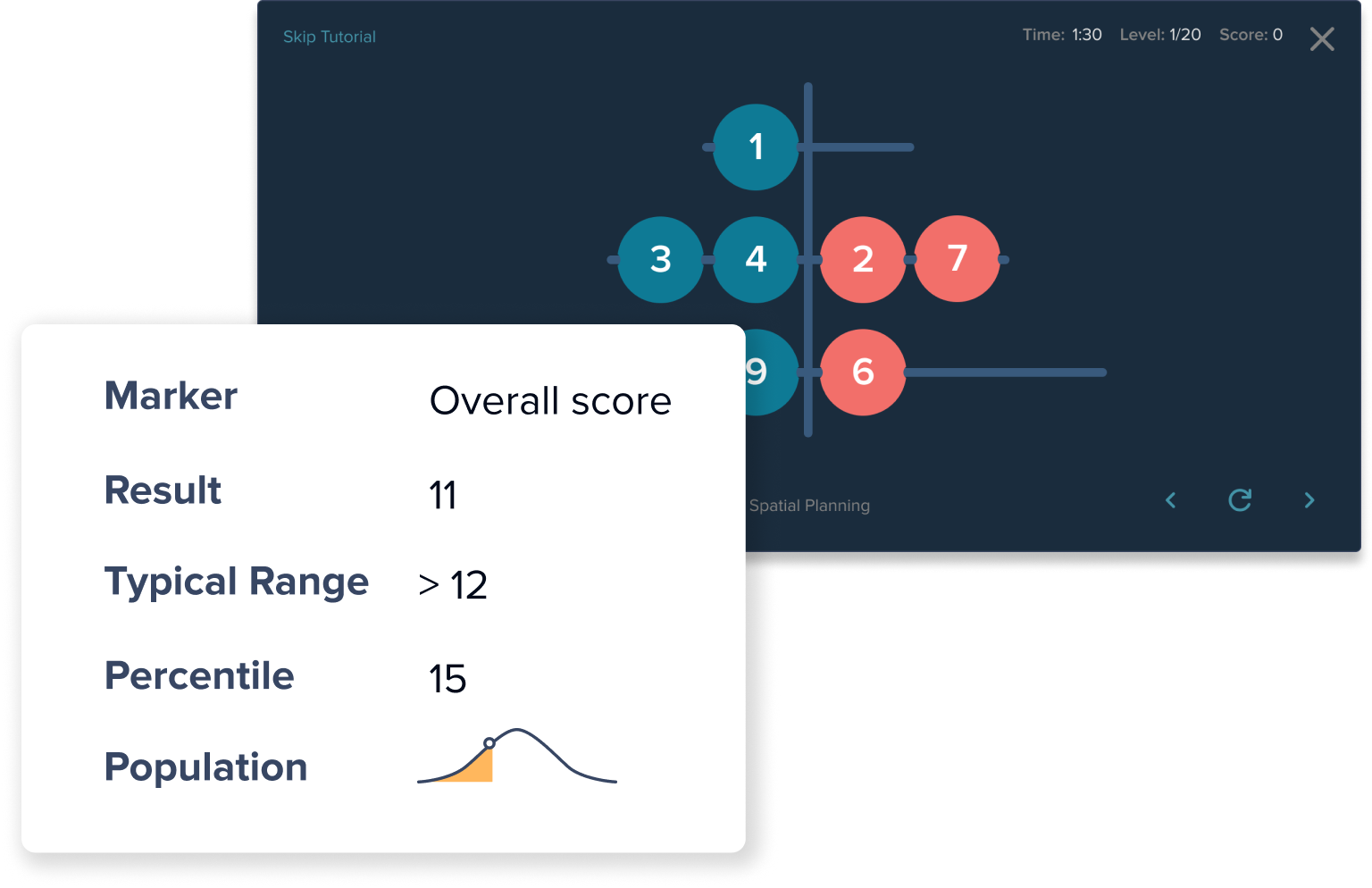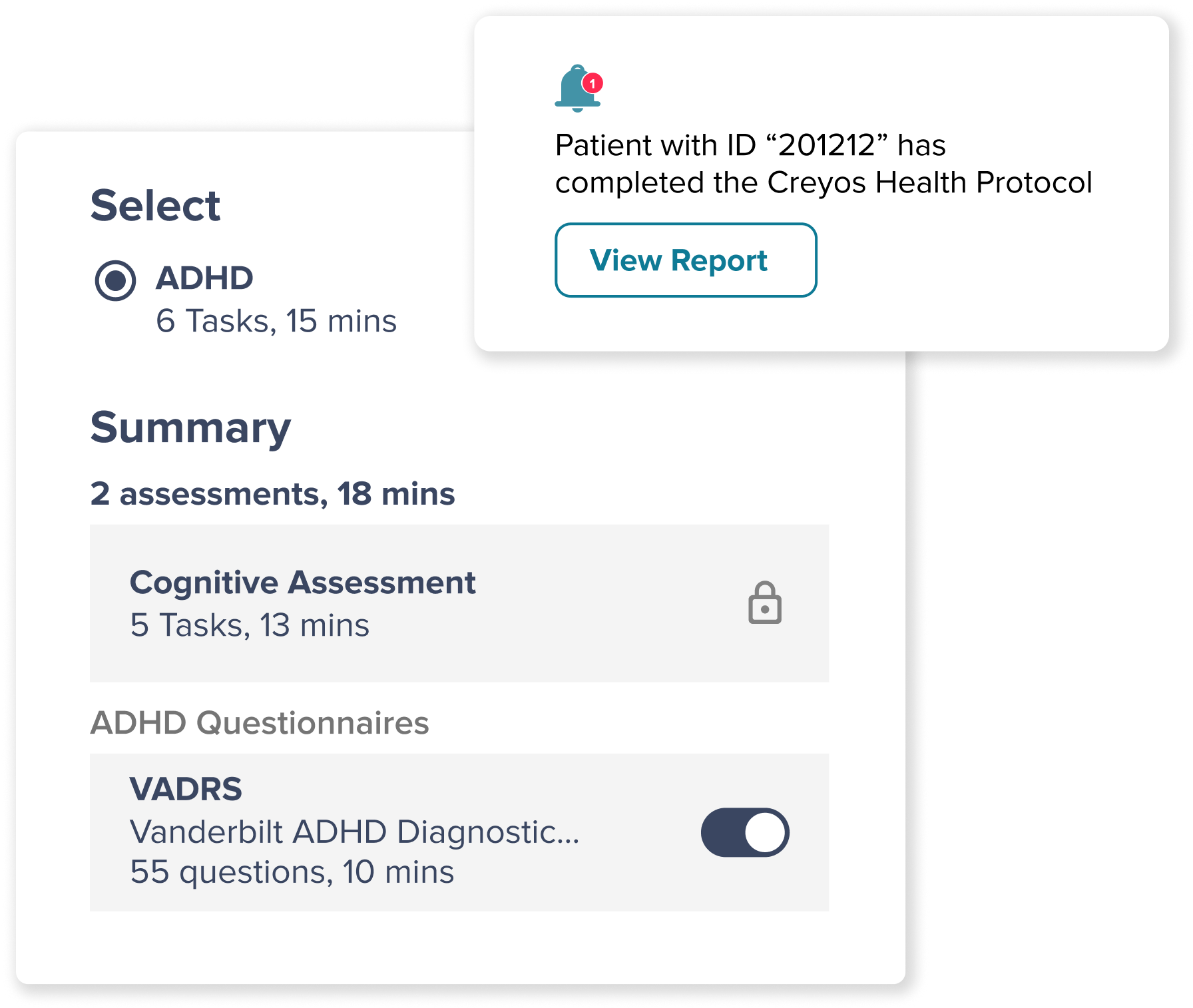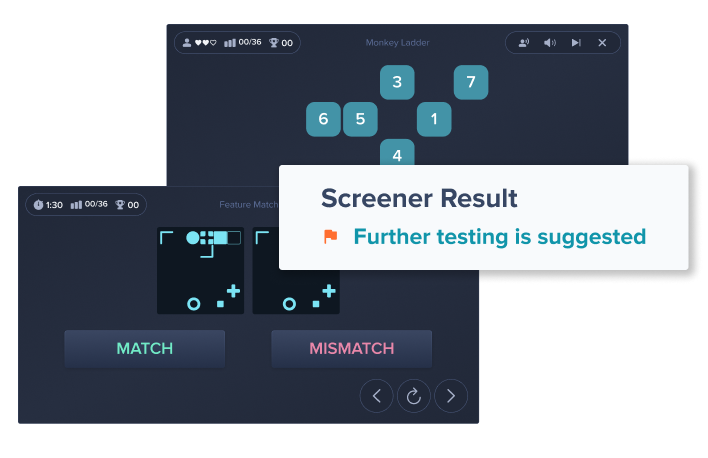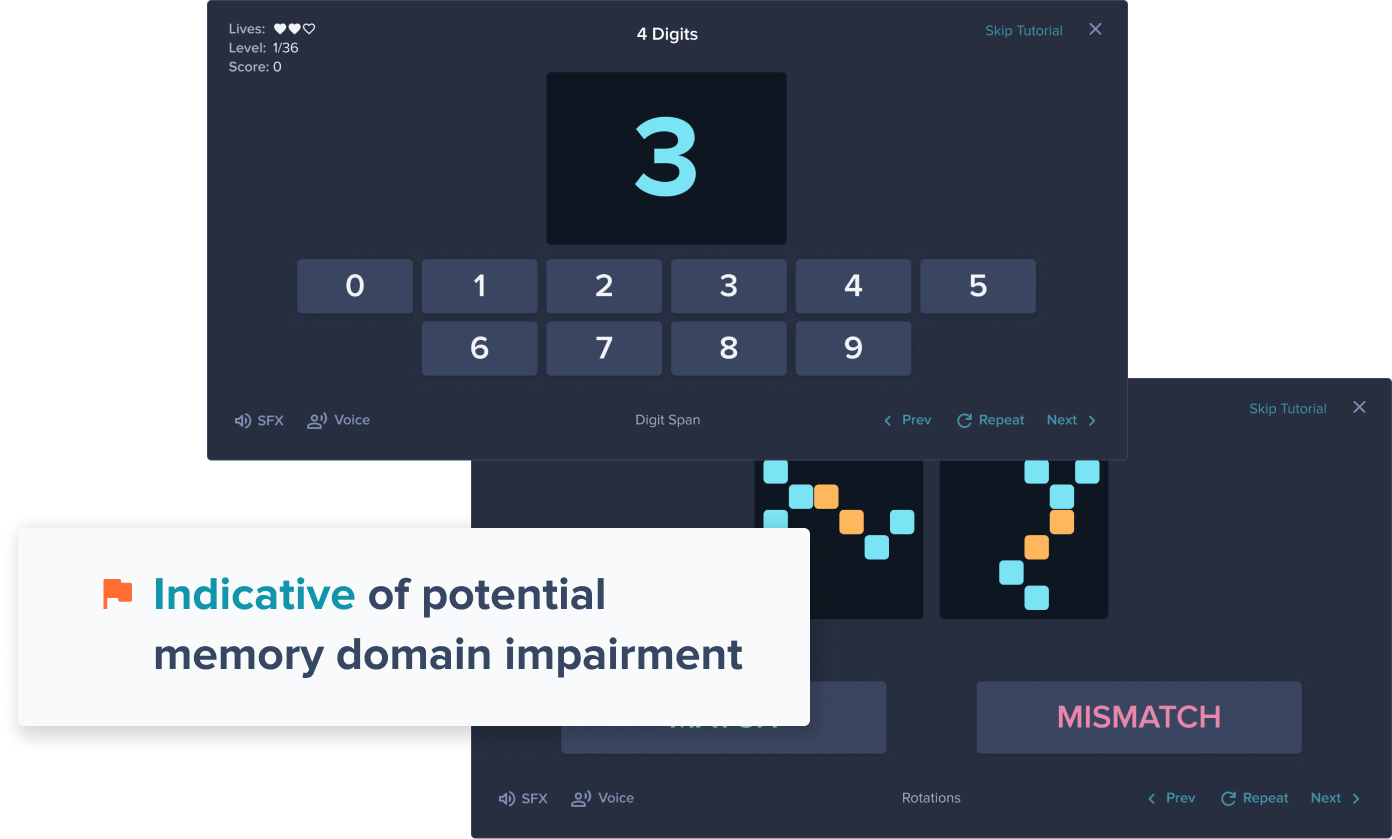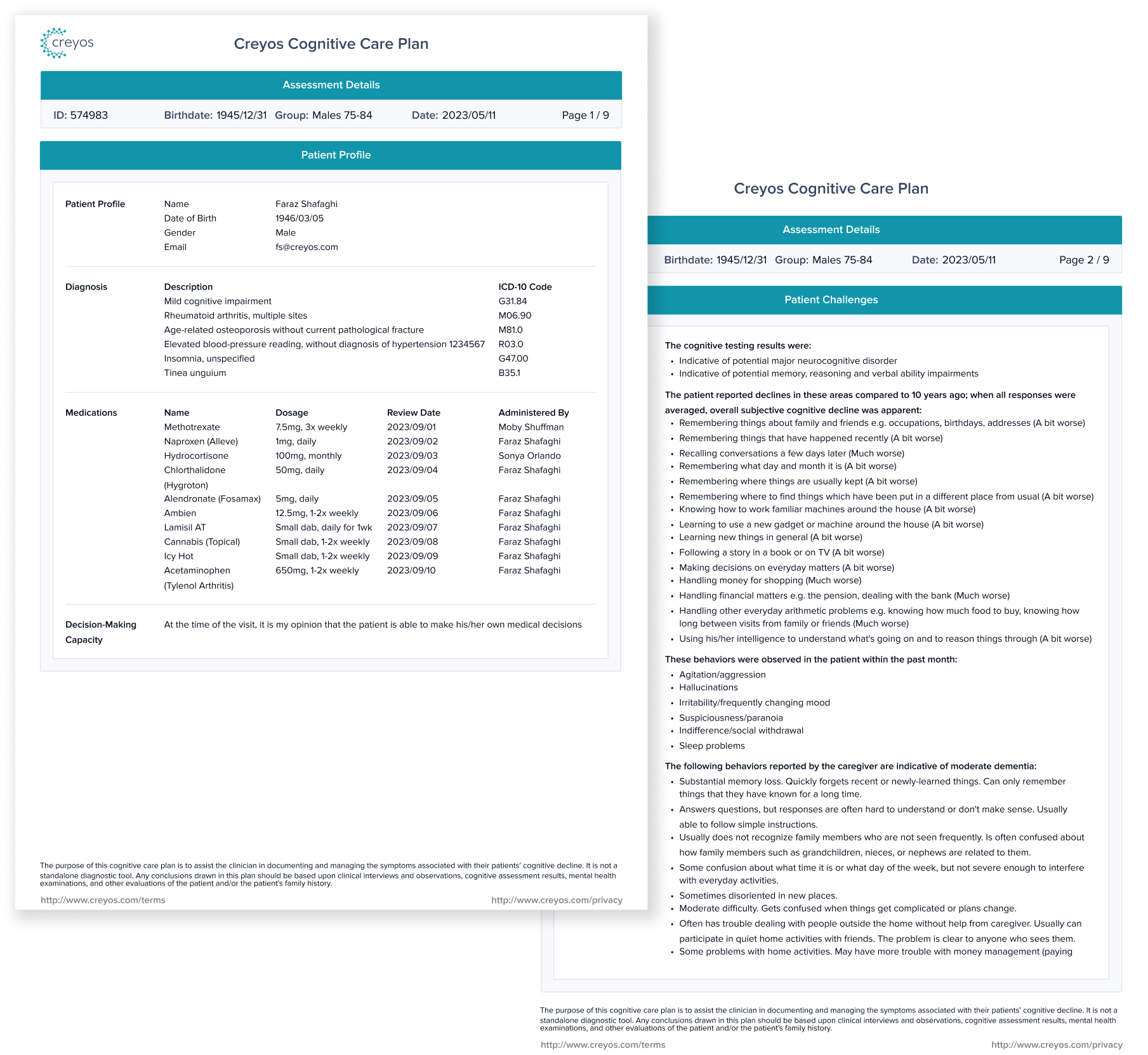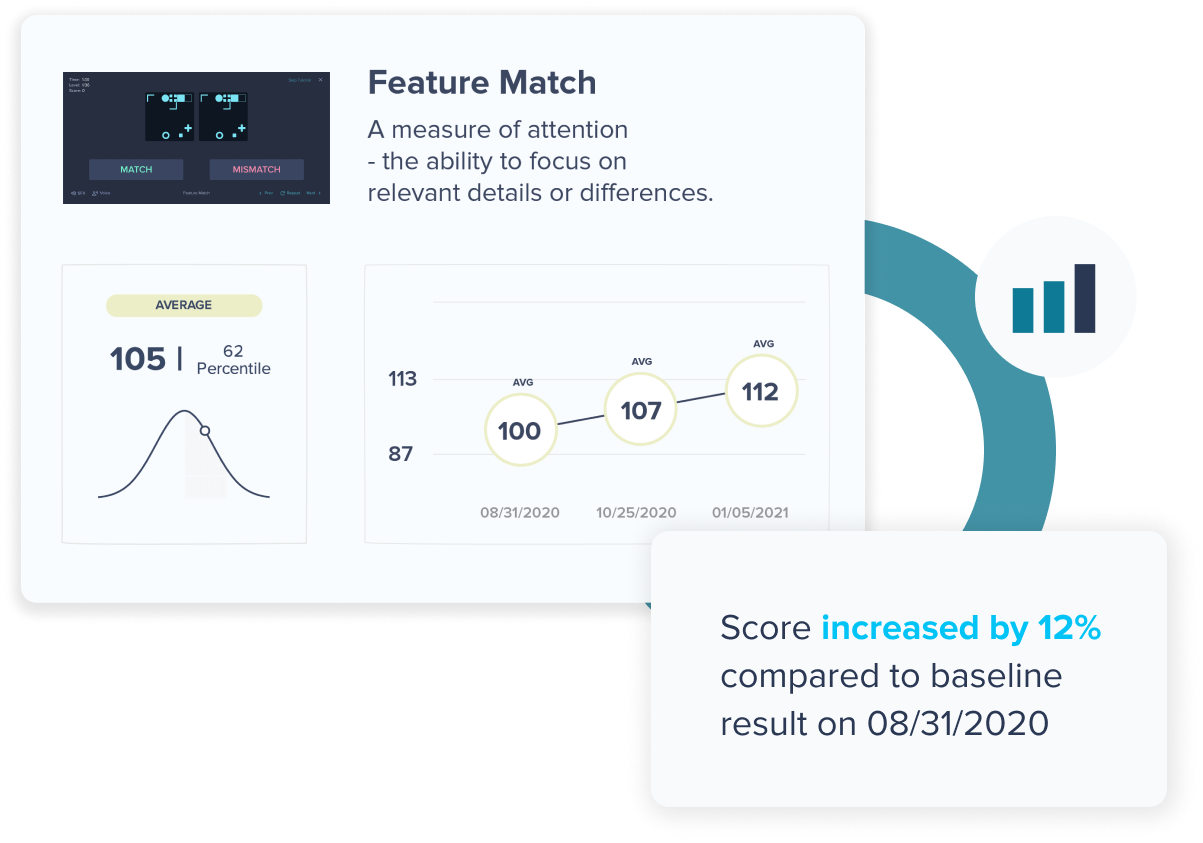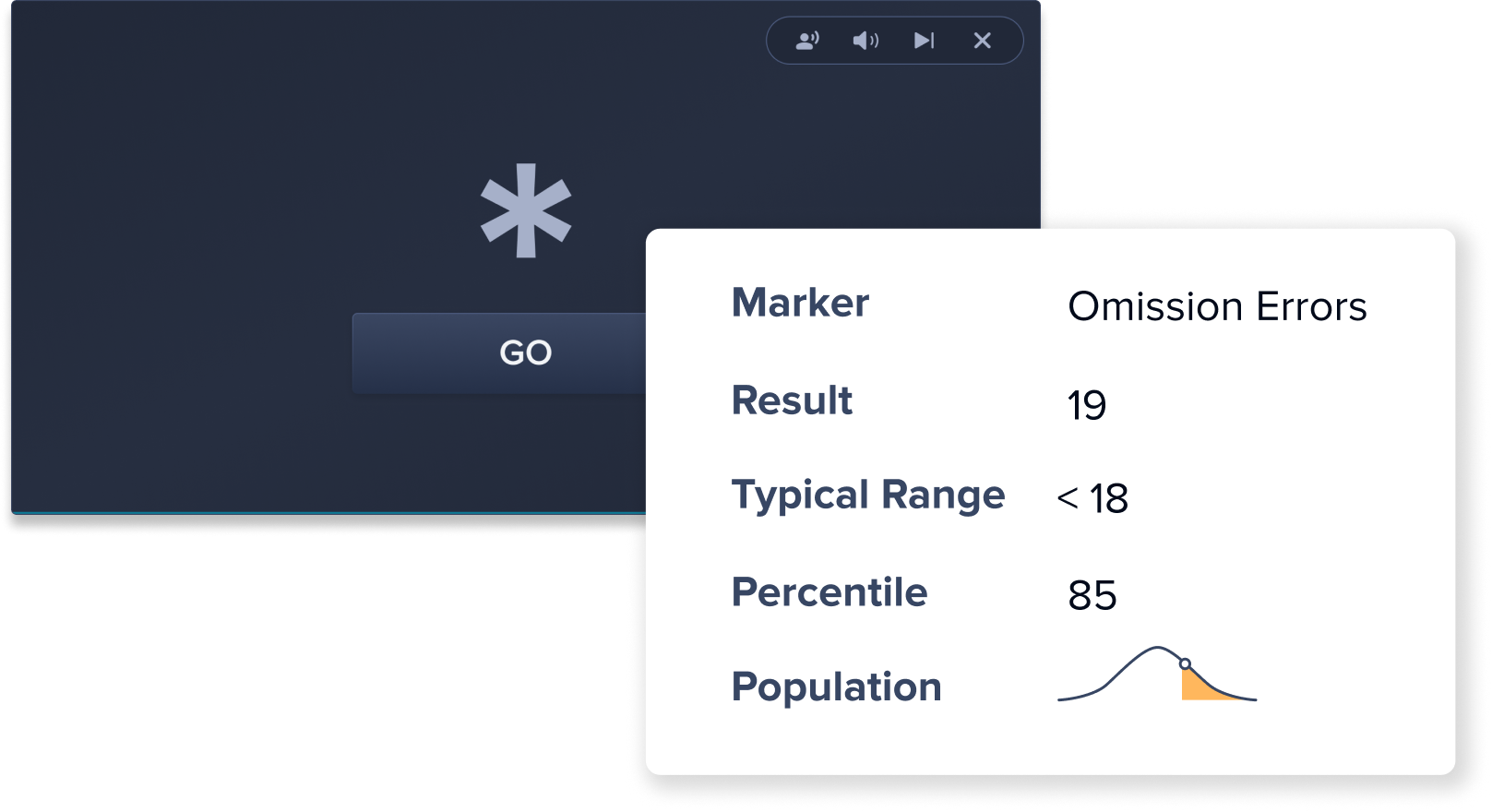We've seen that patients are more invested in their health and they pay more attention to the deficits that showed up in testing. During follow up appointments, they let us know if things have gotten better or worse. We can re-test them using quantitative measures and show them the side-by-side comparison to their earlier results
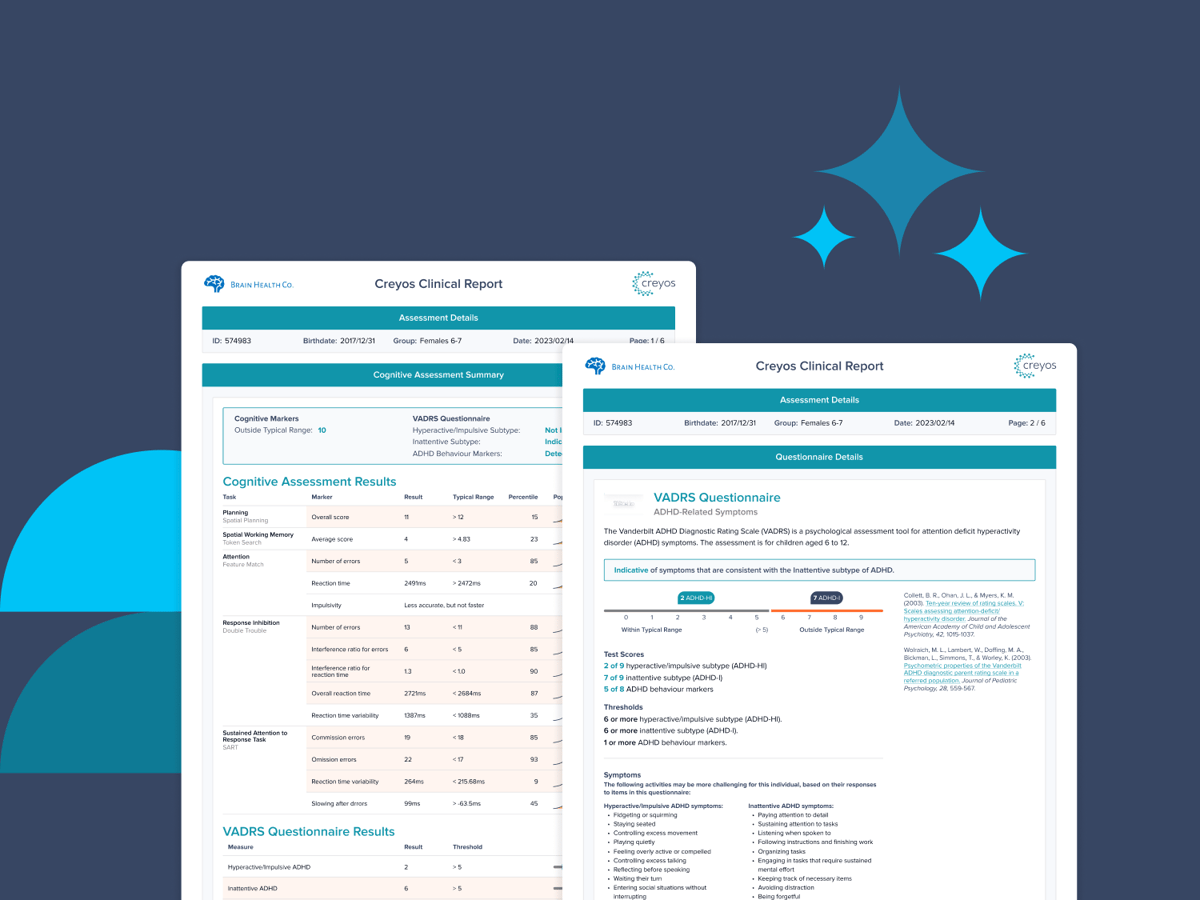
Creyos ADHD Assessment: A Clinical Protocol and Automated Report
With greater public awareness of attention deficit...
Read more


